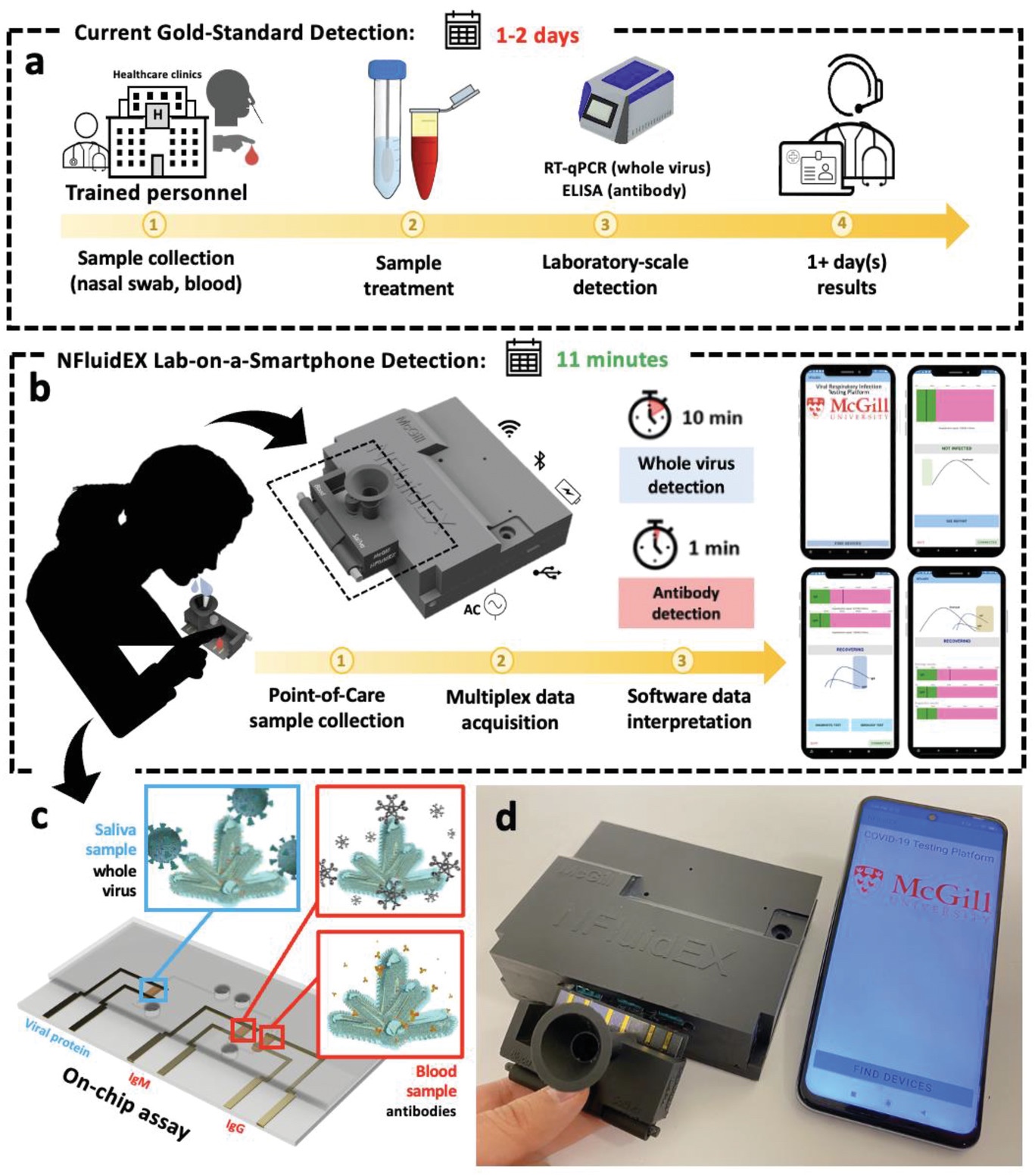 Old habits, they say, die hard. But unfortunately, this does not necessarily mean new habits are born easily. One of the more recent, but suddenly pervasive habits that resulted from the emergence of the COVID pandemic has been testing whether or not one has contracted the pathogen. Who can forget the singularly unpleasant experience of stuffing a long swab up their nose? And who among us has not asked: is there not an easier way to do this?
Old habits, they say, die hard. But unfortunately, this does not necessarily mean new habits are born easily. One of the more recent, but suddenly pervasive habits that resulted from the emergence of the COVID pandemic has been testing whether or not one has contracted the pathogen. Who can forget the singularly unpleasant experience of stuffing a long swab up their nose? And who among us has not asked: is there not an easier way to do this?
Thanks to the genius of McGill researcher Professor Sara Mahshid and her team, there is now.
In a recent paper, Professor Mahshid and Postdoctoral Researcher Roozbeh Siavash presented the NFluidEX device. At first glance, it may not look like much – its black plastic box about the size of a book. But using microfluidic sensors that employ biomimicking technology, it’s not about what it looks like but what it does – and how it does it.
Instead of shoving a long spindle up one’s nasal cavity, testing for COVID using this device is as simple as spitting into a small cup. With that painless procedure complete, you insert the cup into the device, and wait a few minutes. The results of the test are delivered to a mobile app. The NFluidEX machine can detect the presence of the virus in saliva, vastly simplifying our lives.
It is worth noting, however, that although not as widespread as the common nasal swab technique, the use of saliva-based COVID testing protocols has been approved by agencies like Health Canada. But for a variety of reasons, the vast majority of home-testing kits still rely on the nasal swab.
More detailed results
But the Mahshid-Siavash device takes things one step further. Not only can it detect the virus, it also provides a quantitative measure of infection, which helps users gauge how contagious they are, and therefore, how long they should isolate themselves.
The device can also measure the presence of antibodies that fight the virus. This second test requires a blood sample, which can be gathered in exactly the same way as for a blood sugar test, i.e., by using a needle to prick the fingertip.
Results from the blood test are available even quicker than the saliva test, and provides users an idea of how they are reacting to the virus.
“Viral Respiratory Infection was responsible for multiple pandemics in the past including the recent COVID-19, highlighting the need for rapid and reliable tools at the point of need,’ said Mahshid. “Parallel diagnosis of the infection and serology testing as represented by measuring the virus in saliva and specific antibodies in blood will be critical for the management of pandemic. This is what we aimed for in development of NFluidEX.”
Multi-purpose testing
What deserves notice here is that this dual-action in a single Point-of Care (POC) device is absolutely unique at this moment. Moreover, it does so all while offering lab-quality results.
Clinical results taken at the Montreal’s Jewish General Hospital in collaboration with Dr. Chen Liang, showed 100 per cent accuracy, when compared to the gold standard PCR tests. Admittedly, the sample was small – only 40 patients. Nevertheless, it is an encouraging figure, and miles ahead of the current household standard antigen tests, which were only 37 per cent accurate at detecting the Omicron variant of the Covid virus.
But wait, as the commercial saying goes, there’s more. Because the NFluidEx doesn’t stop there. The device is designed in a modular fashion, and the screening technology resides on an easily exchanged chip. Swap out the chip, and it can be used to test for virtually limitless possibilities: it can measure glucose levels, detect other pathogens.
A multi-purpose, reconfigurable testing platform that fits in the palm of your hand and offers lab-level accuracy in as little as ten minutes? Yes, please. Because the device is under patent review, it will be some time before it’s available in stores. But hats off to Mahshid and her team for taking pains to take away the pain of nasal swabs.

Mashallah! Congratulations to this genius excellence.
Yes please! Such a great initiative and hard work!!
this is truely innovative. is it available for general purchase or is it for hospital use for now.
Yes, please. What a wonderful story. It is so encouraging.
Thank you for your continued research
at McGill and The Jewish General Hospital.